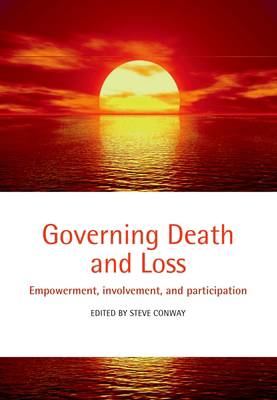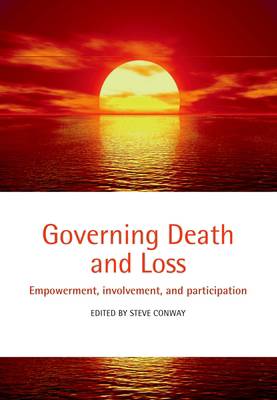
Bedankt voor het vertrouwen het afgelopen jaar! Om jou te bedanken bieden we GRATIS verzending (in België) aan op alles gedurende de hele maand januari.
- Afhalen na 1 uur in een winkel met voorraad
- In januari gratis thuislevering in België
- Ruim aanbod met 7 miljoen producten
Bedankt voor het vertrouwen het afgelopen jaar! Om jou te bedanken bieden we GRATIS verzending (in België) aan op alles gedurende de hele maand januari.
- Afhalen na 1 uur in een winkel met voorraad
- In januari gratis thuislevering in België
- Ruim aanbod met 7 miljoen producten
Zoeken
€ 120,95
+ 241 punten
Omschrijving
Political, economic, social, cultural and technological changes have led to profound transformations in the ways that death and loss are perceived and managed in contemporary society. Over the last few decades, the long term shift to chronic illness as a major causal factor has significantly increased the time scale of dying. Most people die in institutions and 'care' is typically medical. Many communities and ordinary citizens now relinquish control and involvement to experts in the last stages of life. At global and local levels, however, new arrangements are emerging to govern the changing face of death, and a reorientation model is being developed to counter claims of the 'creeping medicalisation' of death and dying. With an international authorship and scope, this book illustrates the interlinking nature of society, death and loss, and it gives examples of governance that promotes the empowerment, participation and the increasing need for the involvement of ordinary people and communities in differing social and cultural contexts. Chapters come from collaborations of academics and practitioners in end of life care - from sociologists, anthropologists or the arts but also from nursing, social work, or medicine. The result is a reflective, academic and practical discussion of the outline of the problem we face in the contemporary governance of death, and an exploration of the critical, theoretical and practice-based ways forward for us all. Features * All chapters are written at an accessible level and will appeal to a wide readership * Part 1 of the book provides a sociological understanding of the governance of death and loss in international and historical contexts, and the implications for practice * Part 2 provides examples of good practice, drawing upon a sociological understanding
Specificaties
Betrokkenen
- Auteur(s):
- Uitgeverij:
Inhoud
- Aantal bladzijden:
- 172
- Taal:
- Engels
Eigenschappen
- Productcode (EAN):
- 9780199586172
- Verschijningsdatum:
- 30/04/2011
- Uitvoering:
- Paperback
- Formaat:
- Trade paperback (VS)
- Afmetingen:
- 170 mm x 244 mm
- Gewicht:
- 317 g

Alleen bij Standaard Boekhandel
+ 241 punten op je klantenkaart van Standaard Boekhandel
Beoordelingen
We publiceren alleen reviews die voldoen aan de voorwaarden voor reviews. Bekijk onze voorwaarden voor reviews.









